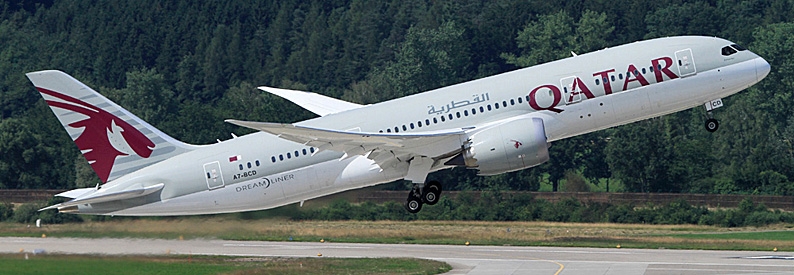EU, Qatar expected to finalise open skies deal by YE21

The European Union and Qatar are expected to finalise an open skies agreement, negotiated in 2019 but never formally implemented, by the end of 2021, French daily La Tribune has reported.
The two sides agreed to liberalise air traffic in April 2019, but the agreement required ratification all EU member states. Due to an entirely unrelated political dispute between Spain and the United Kingdom, then still a member of the bloc, over the status of Gibraltar, the agreement was never approved by the EU and has remained in legal limbo until now. Following Brexit, the European Commission revived the document in April 2021 and published it as a proposal to the Council of the European Union.
The committee of EU member state permanent representatives (COREPER), the equivalent of ambassadors, is expected to approve the proposal later this month, paving the way for its adoption by the Council in October. The Council comprises ministers of all member states and is the bloc’s highest intergovernmental decision-making body. While all countries will still have to ratify the agreement (which can be done through a government decision or a parliamentary vote, depending on the country), it will already be in force on an interim basis once the Council of the EU approves it.
Once in effect, it will replace all bilateral agreements between Qatar and individual EU member states. It will also remove restrictions on frequencies and destinations for flights between the parties. In effect, Qatar Airways (QR, Doha Hamad Int’l) will be able to fly to any destination in the EU, while EU airlines will be able to fly to Doha Hamad Int’l not just from their home countries but also any other EU member state. As of 2019, Belgium, Germany, France, Italy, and the Netherlands had restrictive bilateral air traffic agreements with Qatar, requiring airlines to obtain permits for each new route or frequency increase.
The agreement includes limited social provisions as the EU seeks to ensure that Qatar complies with minimum labour standards as per International Labour Organization (ILO) rules.
Meanwhile, in an unrelated aeropolitical event affecting Qatar, the sheikhdom has appealed for a “clear agreement” on the future of Kabul airport. Since early September, Qatar has been helping the Taliban to secure and operate the airport, allowing the resumption of domestic operations and limited international charters. However, Foreign Minister Mohammed bin Abdulrahman al Thani said that going forward, such an improvised setting could not continue.
“We need to make sure that everything is addressed very clearly, otherwise we will not be able to take any responsibility for the airport. Right now, its status is still under negotiation because we need to have an agreement that’s clear for everyone and for all the parties as to who is going to take care of the technical side and who is going to take care of the security aspects,” al Thani said at a press briefing, quoted by Turkey’s state-owned broadcaster TRT World.
Al Thani underlined that the only parties involved in the talks about the future of the Afghan gateway were Qatar, Turkey, and the Taliban.
